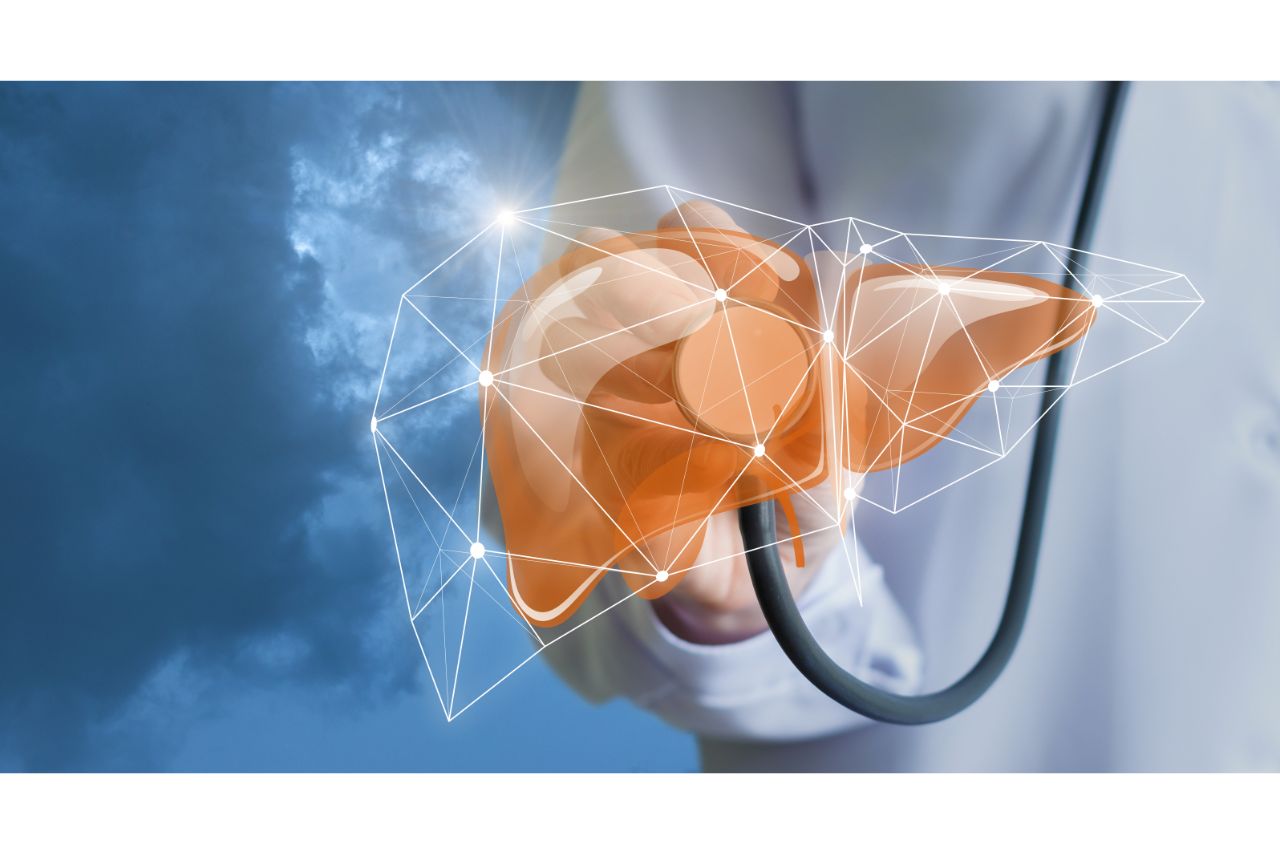Are you concerned about the long-term effects of alcohol on your liver? Discover the 8 best ways to protect your liver from potential damage.
By limiting your alcohol consumption, staying hydrated, eating a healthy diet, and exercising regularly, you can take proactive steps to safeguard your liver's health.
Avoiding binge drinking, getting regular check-ups, and avoiding mixing alcohol with medication are also important preventive measures.
Don't wait until it's too late – start implementing these preventive measures today.
Limit Alcohol Consumption
To prevent long-term liver damage from alcohol, you should restrict your alcohol intake. Alcohol has a significant impact on the liver, and excessive drinking can lead to serious liver damage. The liver is responsible for metabolizing alcohol, but excessive consumption can overwhelm its ability to process it effectively. This can lead to inflammation, scarring, and even liver cirrhosis.
There are several signs of liver damage that you should be aware of. These include fatigue, yellowing of the skin and eyes (jaundice), abdominal pain and swelling, and dark-colored urine. If you experience any of these symptoms, it's important to seek medical attention as they may indicate liver damage.
By limiting your alcohol consumption, you can reduce the risk of long-term liver damage. The recommended guidelines for moderate alcohol consumption are up to one drink per day for women and up to two drinks per day for men. It's also important to have alcohol-free days throughout the week to give your liver time to recover.
Stay Hydrated
Stay hydrated to support your liver health and prevent long-term damage caused by alcohol. Adequate water intake is crucial for maintaining proper liver function and minimizing the harmful effects of alcohol on your body.
When you drink alcohol, your liver works hard to break it down and eliminate it from your system. However, excessive alcohol consumption can lead to dehydration, which puts additional stress on your liver and impairs its ability to function effectively.
Staying hydrated has numerous benefits for your liver. Firstly, it helps to flush out toxins from your body, including alcohol byproducts that can damage liver cells. Secondly, proper hydration supports the production of bile, a substance produced by the liver that aids in digestion and the absorption of nutrients. Additionally, drinking enough water helps to maintain optimal blood volume, improving the flow of oxygen and nutrients to your liver.
To ensure you stay hydrated, aim to drink at least eight glasses (64 ounces) of water per day. You can also increase your water intake by consuming hydrating foods such as fruits and vegetables. Avoiding excessive alcohol consumption is also crucial, as it can deplete your body of fluids and exacerbate dehydration.
Eat a Healthy Diet
Maintaining a healthy diet is crucial for supporting your liver health and preventing long-term damage caused by alcohol. Eating a balanced and nutritious diet can promote liver health by providing the necessary nutrients for its optimal function. According to nutritional guidelines, there are certain foods and habits that can help protect your liver from alcohol-related harm.
Firstly, it's important to consume a variety of fruits, vegetables, and whole grains. These foods are rich in antioxidants, vitamins, and minerals that play a vital role in liver health. Antioxidants help combat oxidative stress and inflammation, which are common consequences of excessive alcohol consumption.
Additionally, including sources of lean protein, such as fish, poultry, and legumes, can help support liver function. Protein is essential for repairing damaged liver cells and promoting their regeneration.
Moreover, limiting your intake of processed foods, saturated fats, and added sugars is crucial for liver health. These foods can contribute to fatty liver disease, a condition that can progress to more severe liver damage if not addressed.
Finally, staying hydrated by drinking enough water is essential. Water helps flush out toxins from the liver and promotes its overall health.
Exercise Regularly
By incorporating regular exercise into your routine, you can significantly reduce the risk of long-term liver damage caused by alcohol. Physical activity plays a crucial role in maintaining overall health and promoting optimal liver function. Here are two key reasons why exercise is important for preventing liver damage:
- Enhances liver health: Regular physical activity improves blood circulation, which allows the liver to function more efficiently. Exercise also helps reduce inflammation in the liver, which is a common consequence of excessive alcohol consumption. By reducing inflammation, exercise can mitigate liver damage and improve its ability to detoxify harmful substances.
- Supports proper nutrition: Exercise is often accompanied by a focus on nutrition, which plays a vital role in liver health. Engaging in physical activity can enhance your commitment to a healthy diet by promoting weight management and reducing cravings for unhealthy foods. Consuming a balanced diet rich in fruits, vegetables, whole grains, and lean proteins provides essential nutrients that support liver function and repair damaged liver cells.
Incorporating both regular exercise and a healthy diet into your lifestyle can have a synergistic effect on liver health. Remember to consult with a healthcare professional before starting any new exercise program, especially if you have an existing liver condition.
Avoid Binge Drinking
To prevent long-term liver damage from alcohol, it's important to avoid binge drinking. Binge drinking refers to consuming a large amount of alcohol within a short period of time, typically leading to high blood alcohol concentration. This pattern of excessive drinking can have serious harmful effects on your liver health.
When you binge drink, your liver is forced to work overtime to metabolize the large amount of alcohol in a short span of time. This can lead to inflammation and damage to liver cells, which, if repeated over time, can result in long-term liver damage, including conditions like fatty liver disease, alcoholic hepatitis, and cirrhosis.
Studies have shown that binge drinking is particularly detrimental to liver health compared to moderate drinking or abstinence from alcohol. It increases the risk of developing liver disease and accelerates the progression of existing liver conditions.
To protect your liver health, it's essential to practice responsible drinking habits. Limit yourself to moderate alcohol consumption, which is defined as up to one drink per day for women and up to two drinks per day for men. It's also important to pace yourself while drinking and to alternate alcoholic beverages with non-alcoholic options to prevent excessive consumption.
Get Regular Check-Ups
Are you regularly monitoring your liver health with check-ups? Getting regular check-ups is crucial for the early detection of liver damage caused by alcohol consumption. These check-ups involve various liver function tests that can provide vital information about the health of your liver.
Here are two important reasons why regular check-ups are essential:
- Importance of early detection:
- Early detection of liver damage allows for timely intervention and treatment, which can prevent further progression of the disease.
- Liver diseases, such as alcoholic hepatitis and cirrhosis, often show no symptoms in the early stages. Regular check-ups can help identify any abnormalities in liver function even before symptoms manifest, enabling early intervention.
- Role of liver function tests:
- Liver function tests, such as liver enzyme tests, bilirubin tests, and prothrombin time tests, assess the overall health of your liver.
- These tests can detect changes in liver enzymes, which indicate liver inflammation or damage, and abnormal levels of bilirubin, which can signify impaired liver function.
- Regular monitoring of liver function tests can help track the progression of liver damage and determine the effectiveness of any treatment or lifestyle changes.
Limit or Avoid Mixing Alcohol With Medication
To protect your liver from long-term damage, it's important to limit or avoid mixing alcohol with medication. This is because certain medications can interact with alcohol and increase the risk of liver toxicity.
It's crucial to identify harmful drug interactions and consult with your doctor or pharmacist to ensure the safe use of medication while consuming alcohol.
Identify Harmful Drug Interactions
Limit or avoid mixing alcohol with medication to prevent harmful drug interactions. Drug interactions can have serious consequences, especially when it comes to liver damage. Here are some important points to consider:
- Consult your healthcare provider: Always talk to your doctor or pharmacist about potential interactions between alcohol and your medications. They can provide specific guidance based on your individual health condition and medications.
- Read medication labels: Pay close attention to the label and package insert of your medications. Look for warnings about alcohol consumption and any potential interactions.
- Some medications may increase the effects of alcohol, leading to drowsiness, dizziness, or impaired coordination.
- Others may interfere with the metabolism of alcohol in the liver, increasing the risk of liver damage.
Risk of Liver Toxicity
Be cautious when combining alcohol with medication to reduce the risk of liver toxicity. Alcohol can interfere with the liver's ability to detoxify chemicals, including medications, leading to liver damage.
The liver plays a crucial role in metabolizing alcohol and breaking down medications. Mixing the two can overwhelm the liver and hinder its ability to function properly.
Chronic alcohol consumption can also impair liver regeneration, making it less capable of repairing itself from any damage caused by medications.
To prevent liver toxicity, it's important to read medication labels carefully and follow instructions regarding alcohol consumption. If you're unsure about the potential interactions between alcohol and your medications, consult with your healthcare provider or pharmacist for guidance.
Prioritizing liver health by limiting or avoiding alcohol when taking medications can help safeguard against long-term liver damage.
Seek Support and Treatment if Needed
If you're struggling with alcohol abuse, it's crucial that you seek support and treatment as soon as possible. Addressing your alcohol addiction is essential to preventing long-term liver damage.
Here are some options to consider:
- Support groups: Joining a support group can provide you with a safe and non-judgmental environment to share your experiences and challenges. Groups like Alcoholics Anonymous (AA) offer a structured program that encourages sobriety and provides support from others who've faced similar struggles.
- Therapy options: Seeking therapy can help address the underlying causes of your alcohol abuse and develop healthy coping mechanisms. Cognitive-behavioral therapy (CBT) is a common approach that focuses on changing negative thought patterns and behaviors associated with alcohol addiction. Other therapy options, such as motivational enhancement therapy (MET) or dialectical behavior therapy (DBT), may also be beneficial.
- Overcoming Emotional Intimacy Challenges With Alcohol Misuse - November 18, 2023
- Overcoming Alcohol's Impact on Emotional Intimacy: 13 Essential Tips - November 18, 2023
- 6 Ways to Overcome Emotional Intimacy Challenges With Alcohol - November 18, 2023









